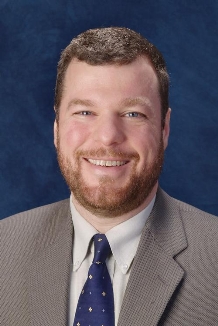We work with clients who have suffered traumatic brain injury, also known as TBI, on our Oregon and Washington injury claims, and our Workers' Compensation claims. Often, insurance companies dispute these claims, arguing that our client did not suffer a traumatic brain injury, or that if he did, it is only a temporary and minor injury. As a result, medical opinions play a central role in proving the traumatic brain injury case.
These kinds of injuries are ripe for dispute because traumatic brain injuries can be subtle, and the symptoms vary from one person to the next. Although there is a wealth of testing available to tease out the symptoms of a traumatic brain injury, the data from these tests is subject to interpretation, and outright abuse. There are many reasons why these injuries can be controversial and a legal setting.
First, our clients often suffer other severe physical injuries that require immediate attention. Emergency room physicians and surgeons are focused on treating the fractured skull, the subdural hematoma, or the cervical fracture. During the emergency room treatment and hospitalization, health care providers are not focused on taking a detailed history to tease out any post concussive symptoms. It is often only months after the injury that a physical rehabilitation doctor or other specialist will quiz our client on some of the hallmark symptoms of traumatic brain injury.
Because the symptoms of traumatic brain injury vary from one patient to the next, and often mimic other conditions like depression, comprehensive neuropsychiatric testing is necessary to confirm the diagnosis. This is only one piece of the puzzle making a diagnosis. Clinicians also need an accurate and detailed history so that they are able to get a picture of their patient's clinical situation both before and after the injury.
Because of the complexity involved in diagnosing traumatic brain injury, insurance carriers are in a good position to "throw mud in the water" in an effort to defend and deny the existence of these conditions. Independent medical examiners well often conclude that the client made a full recovery from the concussion because study show that "most people recover fully within three months." Treating doctors who work with are clients remind us that our clients are not "most people."
Defense medical examiners also enjoy the ability to interpret test results in a way they see fit to reach their own conclusions. Some of the treating physician to employ the same tests warn us not to accept "canned test results." Instead, it is important to look at the whole clinical picture making the diagnosis.
First, Our clients have often suffered other severe injuries like a subdural hematoma or a fractured skull. This injuries require immediate attention, and understandably, emergency room personnel and surgeons are focused on addressing the immediate concern. As result, the more subtle symptoms of a traumatic brain injury are not reported, and are not tested for early in our client's care. This can be important in proving a claim because the client's history is so important in making this diagnosis. This is why a careful history along with a neuropsychological exam can go a long way toward documenting dramatic brain injury.
Lawyers must not get sucked into the mentality of the "battle of the experts." There is often plenty of real-life evidence from friends and family's that clearly show the permanent and sometime significant effects of traumatic brain injury. This is another important piece of the puzzle and telling the story of a client who struggling with this in visible but significant injury.
If you are facing the challenges of a traumatic brain injury, check out the Brain Injury Alliance of Oregon. This nonprofit group provides excellent resources for traumatic brain injury patients and their families. If you have a legal issue involving traumatic brain injury, call us at 503-325-8600. We have significant experience working with clients facing the unique legal issues these cases bring, and can help you find out where you stand on legal ground.


